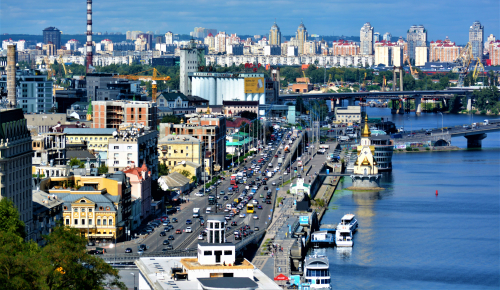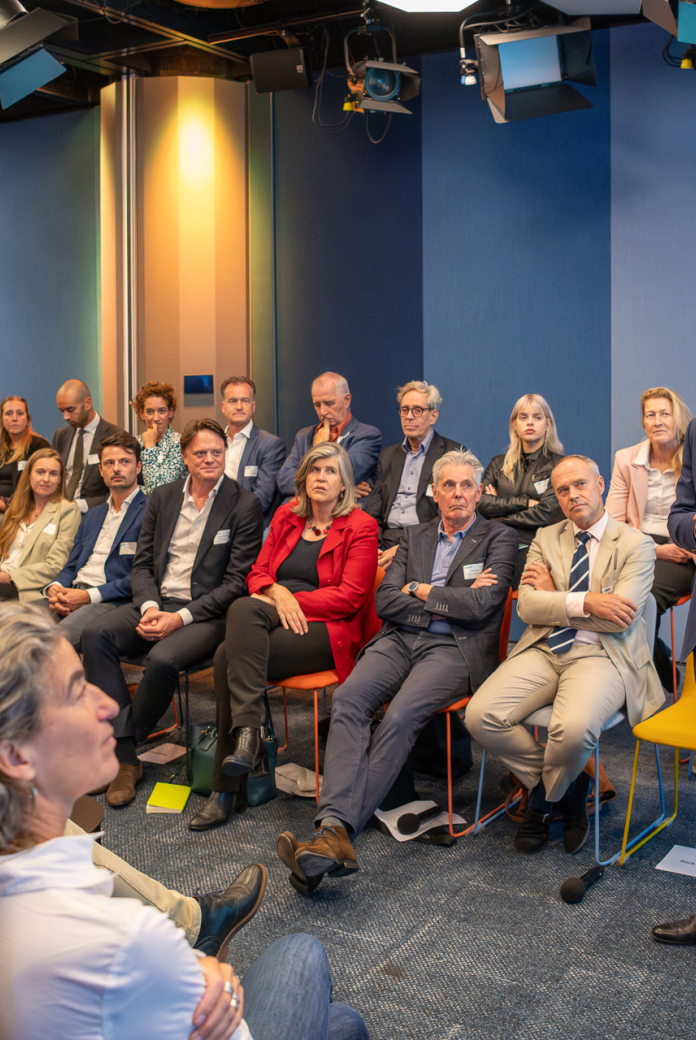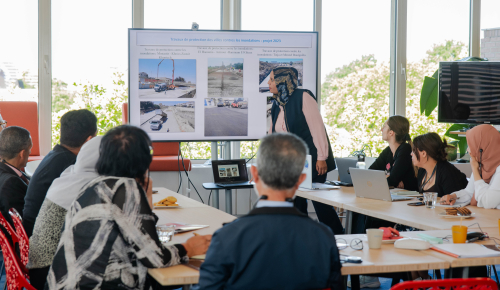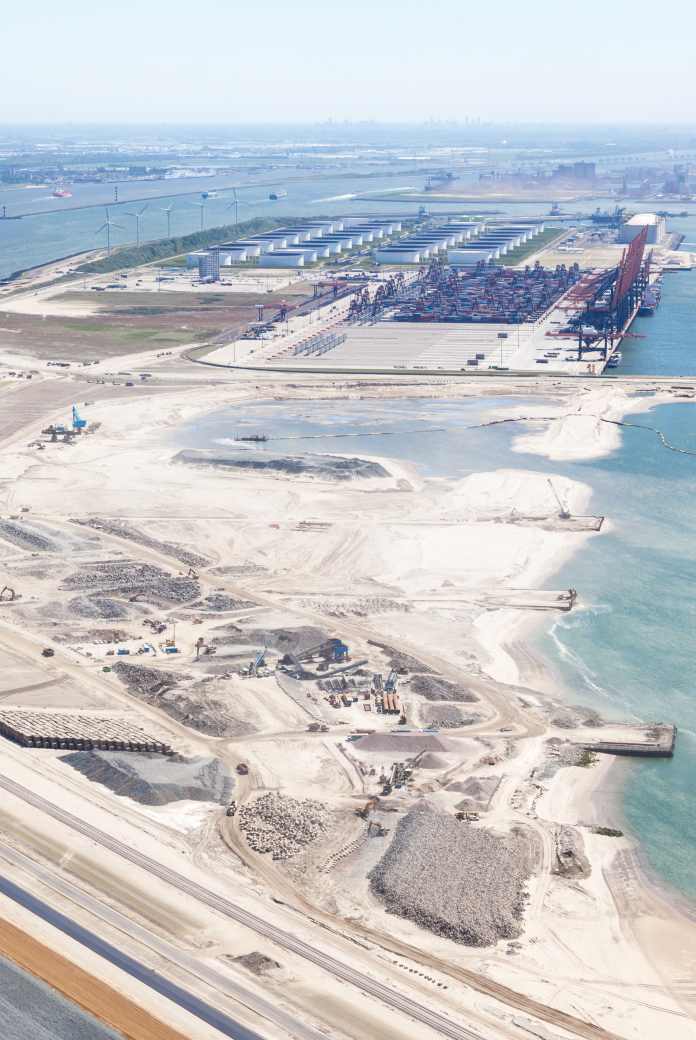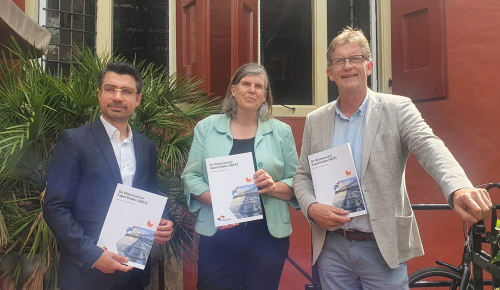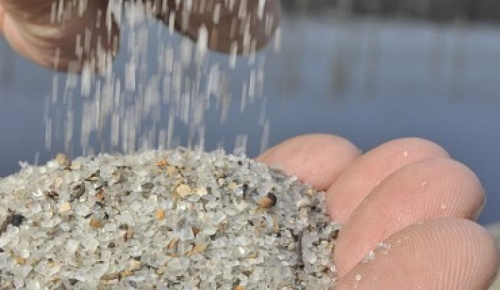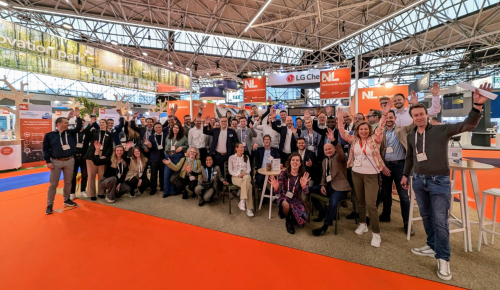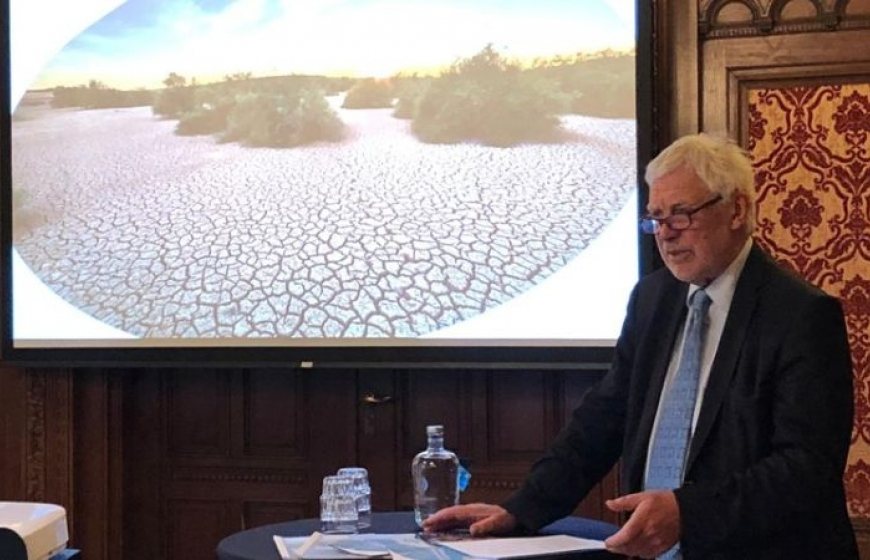
"The water crisis: it is actually a silent assassin at a global scale," says Sybe Schaap in his blog. On 15 April, after serving for eight years, Sybe Schaap will step down as Chair of NWP. During a mini-symposium on 21 March organised by NWP, a farewell reception was held for him at the KIT Royal Tropical Institute in Amsterdam. The theme of the mini-symposium is close to his heart: the global water crisis. A crisis that Sybe Schaap believes has disastrous consequences and for which immediate intervention is necessary. Read his blog.
Complex problem
"Climate change is top of mind. The vast majority of people is convinced that mankind is responsible and that something must be done about CO2 emissions. But we must also realise that it is an incredibly complex problem. People can no longer keep track of it. And this soon leads to an attitude of ‘I don't know who to believe and I wonder if those scientists are correct’. This might lead to scepticism towards science – doubt and suspicion are spreading.
Just too simple
At the same time, politics tend to simplify the matter: global warming is caused by CO2 emissions, and that is again caused by fossil fuels. So if we stop using fossil fuels, we will have solved the climate problem. But that is just too simplistic.
A connected crisis that hardly anyone is talking about is the disastrous extraction of water, both surface water and ground water, for irrigation and industry. Huge areas in China, Africa, the Middle East and other places have completely dried out. We are not approaching the tipping point there, we have already left it behind. It is already too late to turn it around. We are looking at the potential loss of lots of arable land and heavy rural to urban migration, which will further enhance the effects and impact. Furthermore, excessive groundwater extraction leads to subsidence. Just look at Jakarta, entire urban agglomerations are in danger of sinking.
Greatest social risk worldwide
Water scarcity leads to crop failures, rising prices, disruptive migration flows and so on. Groups of people end up in conflicts over the little water that is left. Religious and tribal differences are fuelled and then the focus shifts to the conflict and not the real underlying cause. It is actually a silent assassin at a global scale. It is not without reason that the World Economic Forum considers the Water Crisis to be the greatest social risk worldwide.
In general, I'm an optimist, but I'm really pessimistic about this issue. Knowledge about water and crisis is limited in political circles. It is not given the priority it needs. You will not win elections with this theme, while you should.
It was good to note that, at least during the lively panel discussion at the mini-symposium last week, the urgency was widely recognised. It was rightly established that there are indeed opportunities for improvement and that there is a need for haste. Irrigation in particular has to change course, and the Netherlands has a lot to offer when it comes to technology and governance. In addition, as I stated in my lecture at the mini-symposium, an integrated approach is key if the gaps between the various policy areas are to be broken down. During the World Water Day networking event, later that day, Minister Kaag of Foreign Trade and Development Cooperation also emphasised the need to get out of our silos.
Effective network organisation
I have been Chairman of NWP for eight years. In those eight years, I have come to know NWP as a very dedicated and committed organisation that acts as a very useful catalyst for essential water themes, and in particular when it comes to the opportunities for the Dutch sector abroad. It is a true and very productive network organisation whose mandate is to seek and foster connections between various interest groups. It does this very effectively, from behind the scenes. But working hard in an understated manner does not and will not reduce NWP’s great value, now and in the future. Organisations like NWP are needed more than ever, especially in the face of the global water challenges we are facing today."
About the mini-symposium
After Sybe Schaap's lecture on water & crisis there was a short panel discussion moderated by Rolien Sasse (Water, Peace and Security). Participants were: Karen Meijer (Researcher Climate, Water Scarcity Conflicts, Deltares); Lennart Silvis (Global Director Partnerships Water, Royal HaskoningDHV); Job Kleijn (Former Senior Water Officer, Ministry of Foreign Affairs); and Sybe Schaap himself. At the end of the meeting, the special water envoy Henk Ovink summarised the points raised. Peter de Jong (Witteveen+Bos and member of the board of trustees of NWP) waved Sybe Schaap farewell as Chair. Have a look at the photo impression of the mini-symposium.
About Sybe Schaap
Prof. Sybe Schaap was Chair of NWP from 2011 to 15 April 2019. He has a long track record in the international water sector. For many years he was deeply involved with NWP on the theme of water & crisis. He was recently part of the water & agriculture mission to Jordan and is involved in the water issue in Albania.
Next to his role as Chair, Sybe Schaap is also a VVD Member of Parliament, professor and philosopher with many titles, Chair of the Genetic Modification Committee, Chair of the Supervisory Board of Aqua for All and a guest teacher of philosophy in Prague and Kiev. He was previously Chair of the Water Board of Groot Salland and Chair of the Union of Water Boards. Annemieke Nijhof succeeds him as Chair of NWP on 1 June 2019.
